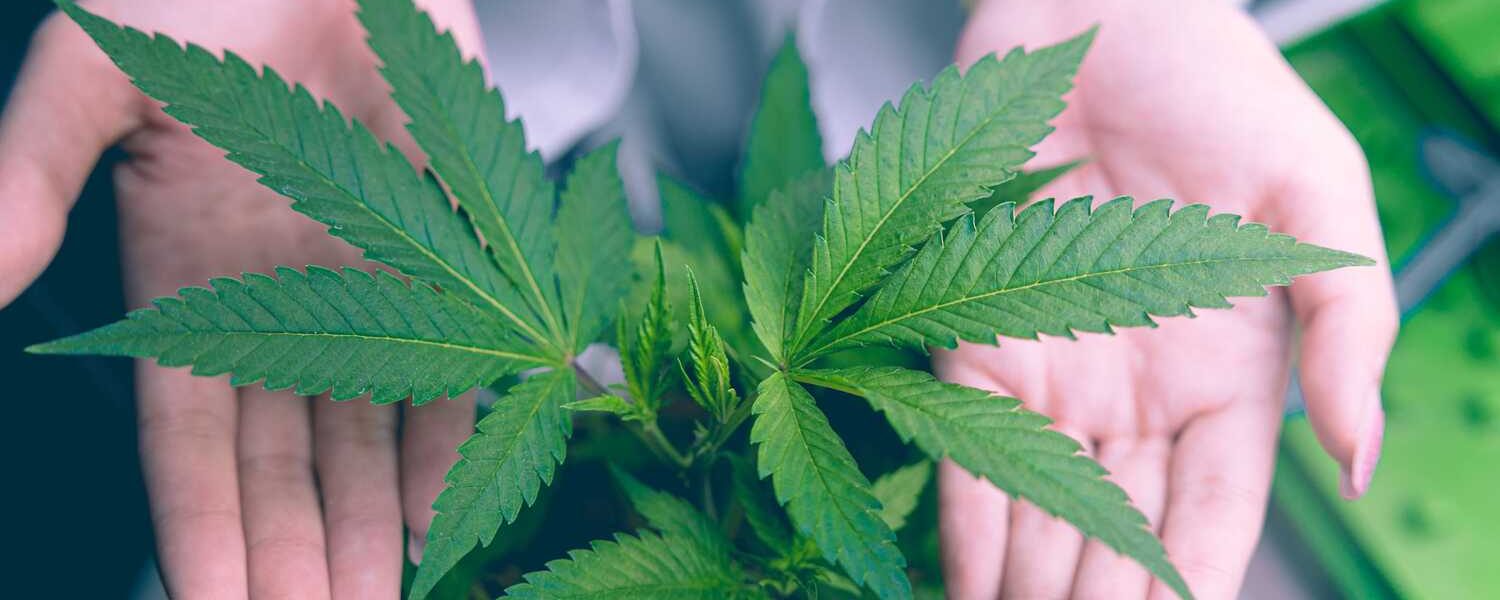Can Medical Marijuana Be Prescribed to Minors?
- Jake Peter
- Published: April 22, 2024
- Fact-checked by Dr. Desiree Granados

The question of whether medical marijuana should be prescribed to minors is a polarizing one. But as legalization of medical marijuana continues to spread, the question continues to grow more and more urgent.
In this article, we’ll explore the legal, medical, and ethical considerations surrounding the prescription of medical marijuana to minors and embark on a deep dive into current research and legislation.
Can Minors Get Medical Marijuana?
In most states with medical marijuana programs, minors can access medical cannabis. That said, these programs typically require the consent of a parent or guardian who’ll act as a designated “caregiver” and purchase medical cannabis products for the minor. In some cases, the recommendation of two healthcare providers is required.
In addition, the conditions for which minors can receive medical marijuana are often more limited compared to adults.
What Is the Youngest Age for Medical Marijuana?
The youngest age at which an American can purchase medical marijuana on their own is 18 years old. Some of the states that allow 18-year-olds to get their own medical marijuana cards include California, Florida, New York, and Pennsylvania.
That said, many states allow minors to obtain MMJ cards with the help of a designated caregiver.
What States Allow MMJ Cards for Minors?
The following states allow minors to obtain medical cannabis cards:
- Alabama
- Alaska
- Arkansas
- Arizona
- California
- Colorado
- Connecticut
- Delaware
- Florida
- Georgia
- Hawaii
- Illinois
- Iowa
- Louisiana
- Maine
- Maryland
- Massachusetts
- Michigan
- Minnesota
- Mississippi
- Missouri
- Montana
- Nevada
- New Hampshire
- New Jersey
- New Mexico
- New York
- North Dakota
- Ohio
- Oklahoma
- Oregon
- Pennsylvania
- Rhode Island
- South Dakota
- Texas
- Utah
- Virginia
- Vermont
- Washington
- West Virginia
- Washington D.C.

How Can a Minor Get an MMJ Card?
The steps for applying for a medical marijuana card for a minor can vary from state to state. That said, the process usually entails the following tasks:
- Consult a Physician: The first step to obtaining a medical marijuana card as a minor is consulting a licensed medical marijuana doctor. To get approved for medical cannabis treatment, the minor must have a qualifying condition recognized by their home state.
- Parental Consent: Since the applicant is a minor, parental consent is required. A parent or legal guardian must accompany the minor to the medical marijuana evaluation and agree to serve as their caregiver.
- Medical Documentation: The minor’s healthcare provider must provide documentation that confirms the diagnosis of a qualifying condition.
- State Application: The next step is to complete your state’s official Medical Marijuana Use Registry application. This typically involves filling out forms and submitting them online or via mail, depending on your state’s process.
- Pay the Fee: Most states impose an application fee for processing the MMJ card.
- Approval and Receipt of MMJ Card: After reviewing your application, the department in your state responsible for medical marijuana will issue an MMJ card.
What Are Common Qualifying Conditions for Minors?
Some of the most common qualifying conditions for American minors include:
- Amyotrophic lateral sclerosis
- Cancer
- Cerebral Palsy
- Epilepsy and other seizure disorders
- Intractable neuropathic pain
- Muscular Dystrophy
- Terminal illness
- Tourette’s Syndrome
Is Medical Marijuana Safe for Minors?
While some research suggests CBD-rich medical marijuana can provide relief for minors [2] with conditions such as severe epilepsy and autism, there are concerns [3] about its impact on brain development, mental health, and lung function, as well as its addictive quality.
Consequently, many healthcare providers and researchers promote caution, recommending that medical marijuana only be considered for minors when conventional treatments have failed, and even then under strict medical supervision.
How Do I Become a Caregiver?
To become a medical marijuana caregiver, you must follow the steps specific to your home state. While these steps can vary from state to state, the process [4] generally goes as follows:
- Determine the Patient’s Eligibility: Ensure that the patient you intend to care for qualifies for medical marijuana use in your state by getting them evaluated by a medical marijuana doctor.
- Apply for a Caregiver’s License: Apply to obtain a caregiver’s license from the appropriate department in your state’s government. This process may involve a background check.
- Submit the Required Documentation: Submit all required documentation to the state. This may include proof of residency, a government-issued ID, and fingerprints for a background check.
- Complete Any Required Training: Some states require caregivers to complete specific training courses related to medical marijuana.
Conclusion
The landscape of medical marijuana for minors is complex and fraught with legal, medical, and ethical considerations. It’s imperative that the decision to pursue medical marijuana treatment for a minor be made with thorough deliberation, medical oversight, and legal compliance.
If you’re interested in obtaining an MMJ card for a minor under your care, the Sanctuary Wellness Institute can help. We can connect you with a doctor who can evaluate the minor for medical marijuana treatment and, if appropriate, certify them for it. What’s more, our team can guide you through the process of applying for an MMJ card for the minor.
States Where We Offer Medical Marijuana Card Services
How we reviewed this article:
- Allison Hall (2020). Minor differences: Rules for underage medical marijuana patients
https://www.spokesman.com/stories/2020/may/11/minor-differences-underage-medical-marijuana-patie/ - American Academy of Child & Adolescent Psychiatry (2023). Marijuana and Teens
https://www.aacap.org/AACAP/Families_and_Youth/Facts_for_Families/FFF-Guide/Marijuana-and-Teens-106.aspx - Adi Aran and Dalit Cayam-Rand (2020). Medical Cannabis in Children
https://www.ncbi.nlm.nih.gov/pmc/articles/PMC7000154/ - Amanda Singleton (2020). Everything You Need to Know About Becoming a Medical Marijuana Caregiver
https://www.aarp.org/caregiving/health/info-2020/medical-marijuana-caregiver.html
Current Version
April 22, 2024
Written By
Jake Peter
Fact-checked By
Dr. Desiree Granados
Editorial Process
Our Editorial Process

Jake Peter received his journalism degree from Emerson College and has been writing content for the Sanctuary Wellness Institute since 2021. He is passionate about all things cannabis.







